#Metternich
Text

I am now imagining Napoleon monkey hunting in America and eating coconuts to reflect on his past greatness
#Napoleon#napoleon bonaparte#napoleonic era#Metternich#klemens von Metternich#emperor Napoleon#Marie leopoldine Metternich#meme#Napoleon meme#Napoleon memes#France memes#French memes#history memes#history#frev#french revolution#Napoleonic wars#first french empire#French empire#19th century#1800s#France#napoleonic#humour#humor#funny#history meme#1st empire#book#quote
1K notes
·
View notes
Text
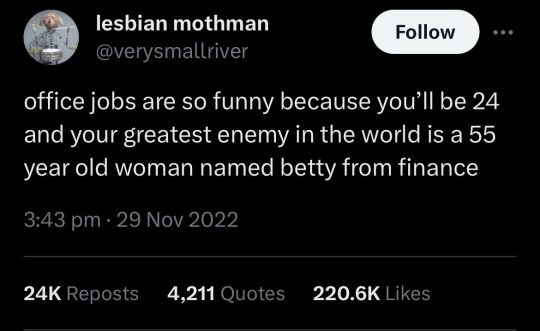

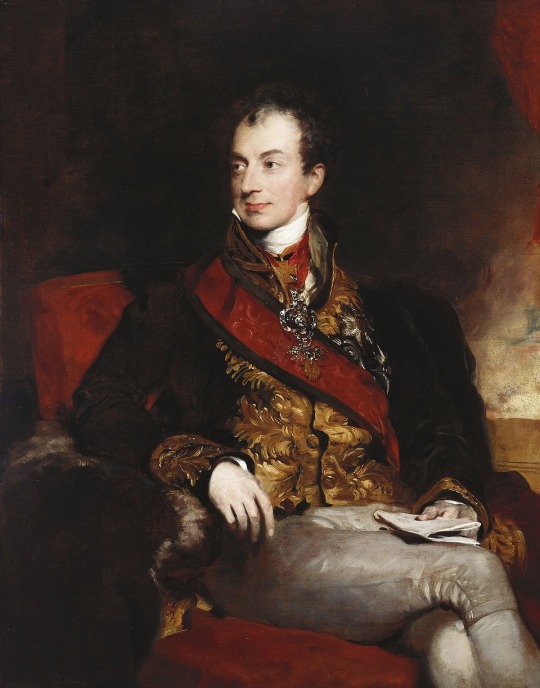
20 year old Duke of Reichstadt, aka Napoleon II and his 58 year old greatest enemy, the Chancellor of the Austrian empire, Metternich
((Inspired by a post by @whatdoyouwanttobecalled ))
#napoleon ii#Metternich#rip to you napoleon ii. I really like the part where you never did anything :)
115 notes
·
View notes
Text





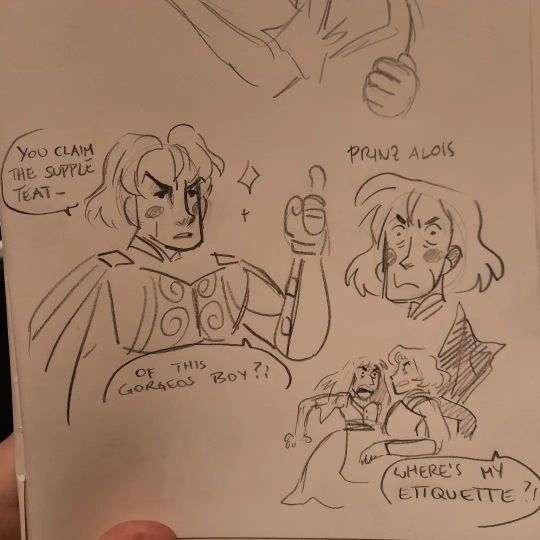



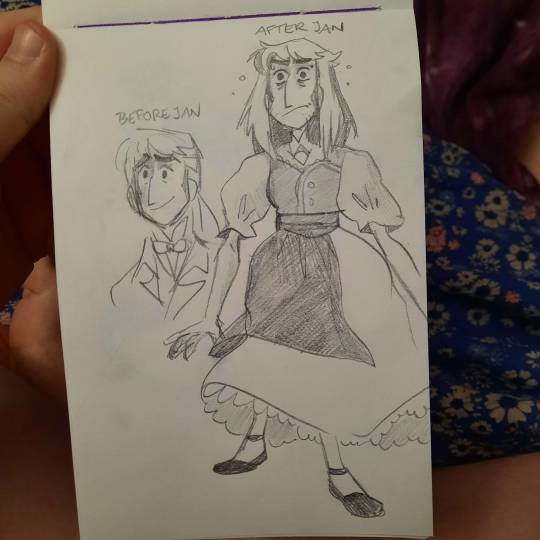

czech rebel x austrian bastard aka idiotic language barriers new doodles masterpost
coproduction with my manželka @neoncl0ckwork: Poštolka, the giant hairy loupežnik with the tattoos and Jenik, the fluffy haired soft boy belong to her!!
metternich and franz the first actually existed and are, of course, very historically accurately portrayed here X'D
#czech rebel and austrian bastard#Poštolka#hannes#jan#lothar#metternich#franz the first#cirileeart#alois#men in dirndls#dirndl#kaiserreich österreich#wir sind kaiser#basically ahahhaha#but make it gay
191 notes
·
View notes
Text

I'm here to bring you totally true Napoleonic history facts and stupid Simpsons jokes.
#napoleon#napoleon bonaparte#napoleonic era#napoleonic wars#metternich#klemens von metternich#francis i#austrian empire#my art
89 notes
·
View notes
Note
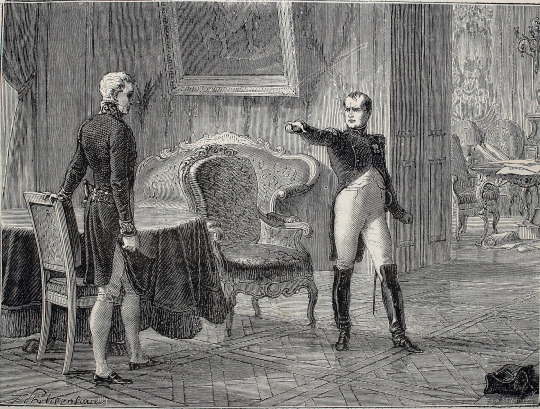
A Metternich went into the enclosure and got told off. Was my Napoleon a bit too rude?
Rating: Not Cute!
Listen, why do you have your Napoleon in an enclosure where there are wandering Metternichs? Metternichs can inspire Napoleons to throw their hats on the ground!
They also mock a Napoleon for his choice of marriage and at least according to themselves are a nail in the coffin guaranteeing Austria will support the Coalition and inspire Napoleons to say really creepy things about how they’re willing to fight to the last non-Frenchman and they have an income of 100,000 lives and then Metternichs also get into really weird beefs with Napoleon chicks
But mostly it’s the hat thing! Your Napoleon got so stressed he threw his hat to the ground! Now it’s dirty. Get him a new one and put up a better fence to prevent roaming Metternichs from making him sad.
20 notes
·
View notes
Text
I'm reading about the 9 hour Dresden conference where Napoleon and Metternich are just arguing back and forth and all I can picture is that scene in Megamind when he and Metroman are bickering 🤣
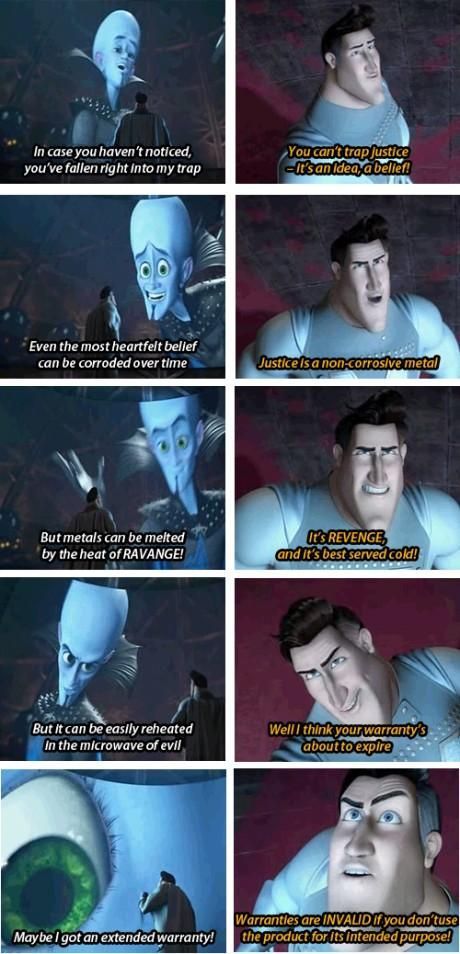
95 notes
·
View notes
Photo

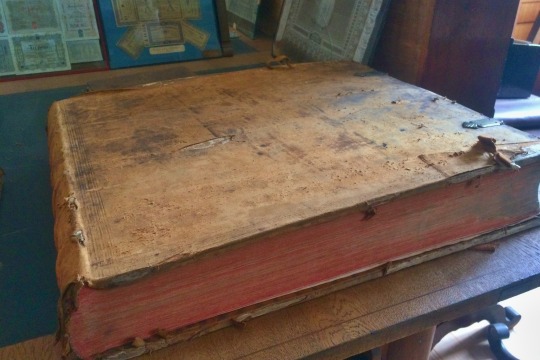
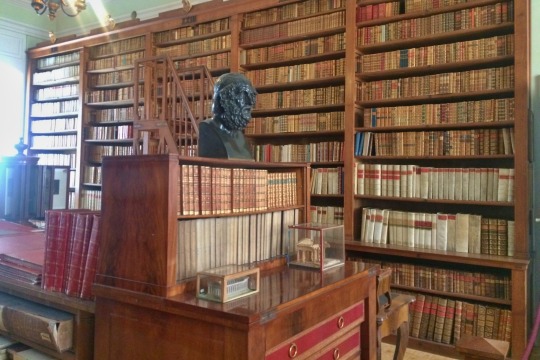
Kynžvart Castle in western Bohemia can be proud of one of the largest encyclopedic libraries in our country. It comes from the first half of the 19th century. The library is part of the museum, which was created in the castle by the chancellor and diplomat in the service of the Austrian court, Franz Georg Karl von Metternich. photo: Petr Halla ©
https://www.zamek-kynzvart.cz/cs/vice-o-zamku/zamecke-sbirky
https://region.rozhlas.cz/na-zamku-kynzvart-je-k-videni-metternichova-knihovna-cita-na-25-tisic-vzacnych-7574366
#library#czech republic#Czechia#castle#kynžvart#encyclopedia#museum#metternich#austria#book#books#bookworld
64 notes
·
View notes
Text
The session of plenipotentiaries that never happened,
Or The tale of how I rediscovered that one lithography of Isabey’s famous painting in extremely high resolution and went through a total recall, so that everybody could suffer (myself including) ⭐️
The arrival of the Duke of Wellington had not only affected Vienna's diplomatic activity and social calendar; it was also posing a problem to the painter Jean-Baptiste Isabey, who was trying to capture the congress on canvas. He had been working for some time, and he had finally found a way to balance all the strong personalities, many of them patrons, into one single painting, and yet not offend national sensibilities or fragile egos.
The painting, which depicted the delegates gathered in a conference room, turned out to be a compromise in the best spirit of Vienna diplomacy.
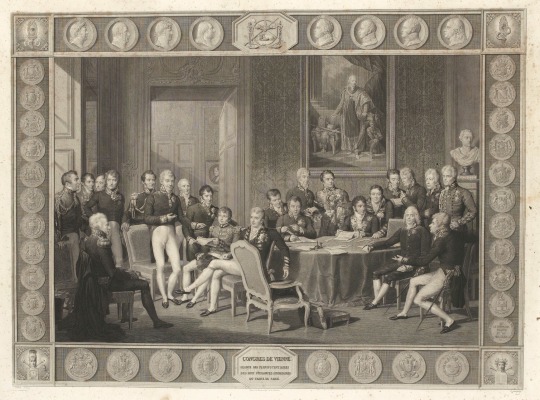
Metternich, the president of the Congress, draws the eye, as the only standing figure in the foreground.
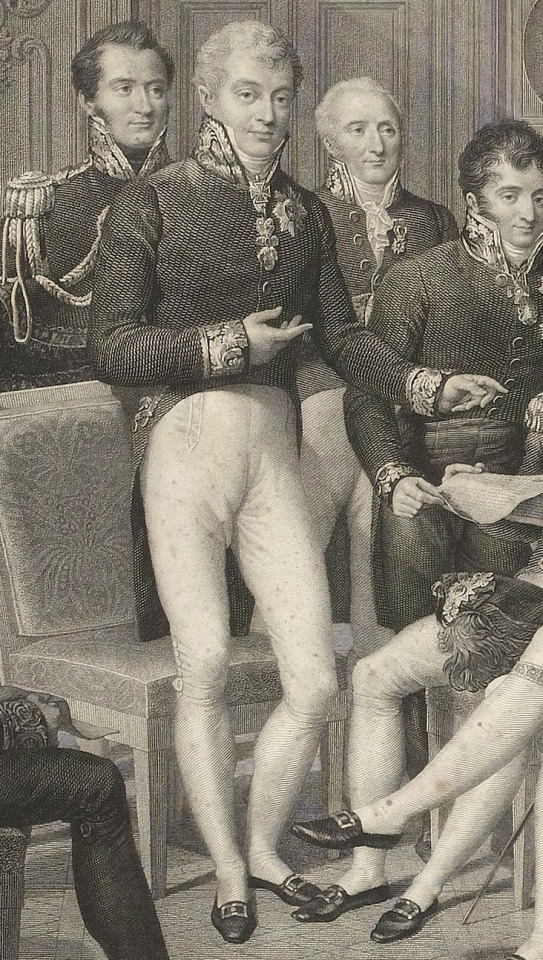
Castlereagh, though, commands the center, sitting with his legs gracefully crossed and elbow resting on the table.
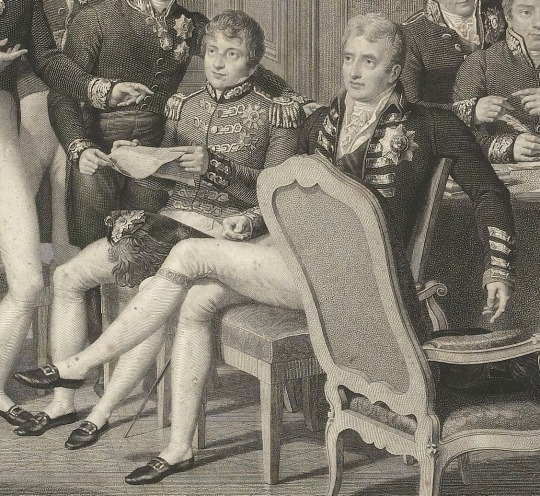
The light shining through the window, however, falls onto Talleyrand, sitting across the table with his dress sword at his side. An empty chair on both his right and left make him further stand out, as do the nearby figures who look to him, just as many of the smaller powers had sought his leadership the last few months.
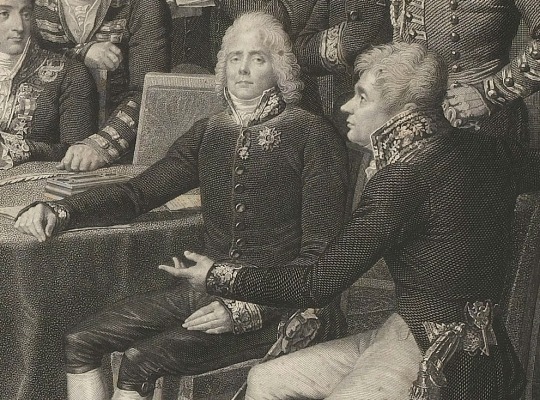
As Isabey was putting the finishing touches to his composition, he had to figure out what to do about the fact that the Duke of Wellington was now also in town. Starting over was out of the question. Omitting a man of his stature was equally impossible. Yet it was not easy to incorporate him into a canvas on which all the best places had already been taken. The painter's solution was simple and elegant: why not make the painting commemorate the Duke of Wellington's arrival in Vienna?
That way, the duke could simply be inserted on the far left side of the painting, without any insult to his position. As for the duke's reluctance to be painted from a side angle (he was self-conscious about his nose), Isabey had overcome that with a well-targeted compliment: didn't Wellington look like the handsome and chivalric Henry IV? Pleased with this comparison, Wellington accepted, joking that Isabey was a "good enough diplomat to take part in the Congress".
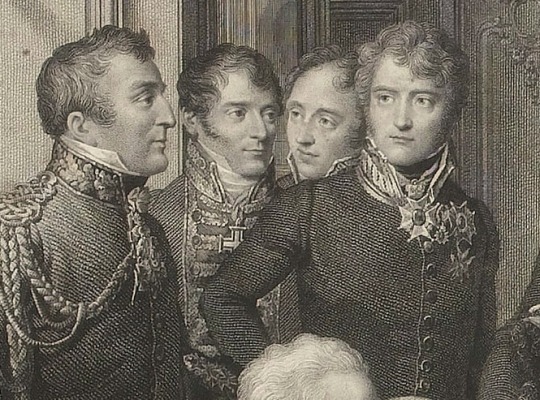
The painter also had to apply his finesse to convince Humboldt to enter the studio. The Prussian ambassador hated to have his portrait made, and, sure enough, he first declined, claiming that he had "too ugly a face ever to spend a penny" on a portrait. With this statement, Isabey saw his opportunity and emphasized that he would not "ask the slightest recompense for the pleasant trouble I am going to take". Isabey only wanted "the favor of a few sittings".
"Oh, is that all?" Humboldt quickly came around when he realized it would not cost him anything. "You can have as many sittings as you like".
Later, many congratulated Isabey on his portrait, particularly the fine job with Humboldt. The Prussian did not pay anything, as agreed, and Isabey got his revenge, Humboldt joked, by painting "an excellent likeness of me".
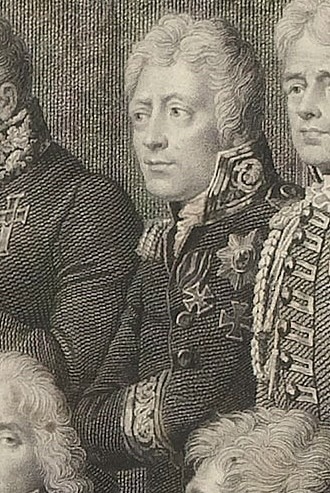
Few could complain of the treatment received from Isabey's flattering brush. This famous painting of the Congress of Vienna was pleasing to all, though typical of this peace conference, the scene was purely imaginary. The group of twenty-three delegates had never met in exactly this way before. Isabey had painted the portraits of each figure individually, and then later assembled the whole group together.
And so, symbolically, this simulated image would commemorate a congress that never was.
After that spectacular depiction of historical context surrounding Isabey’s magnificent canvas by David King few things are left to be added. I would simply love to highlight some other figures of utmost importance for the diplomatic life of that illustrious historical period - there are
Karl August von Hardenberg, Prime Minister of Prussia at the time;
Herren Wacken and Friedrich von Gentz, two Secretaries who were responsible for the protocols of the most important Congress' meetings;
count Karl Vasilyevich Nesselrode, a Russian-German diplomat, who was going to become state chancellor of the Russian Empire (in 1816);
prince Andrey (Andrew) Kirillovich Razumovsky, an extremely wealthy Russian aristocrat and diplomat, for whom Vienna was like his second home;
and we shouldn’t (or rather can’t) forget about general Charles Stewart-Vane, Castlereagh’s younger brother who definitely knew how to throw an unforgettable party, so refined aristocratic society could discuss his wild adventures at their fashionable salon meetings day and night. ✨
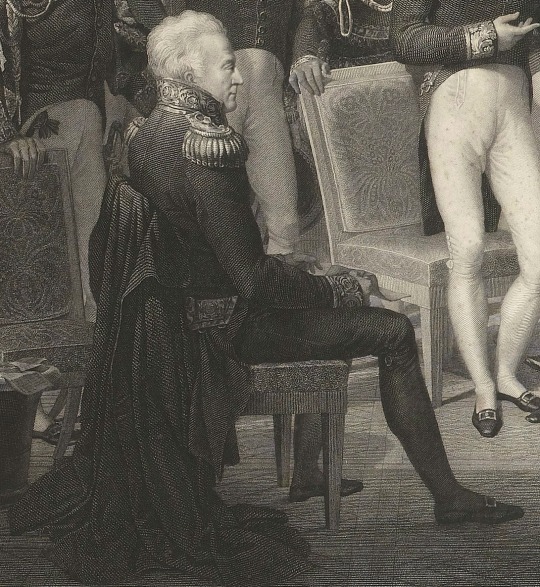
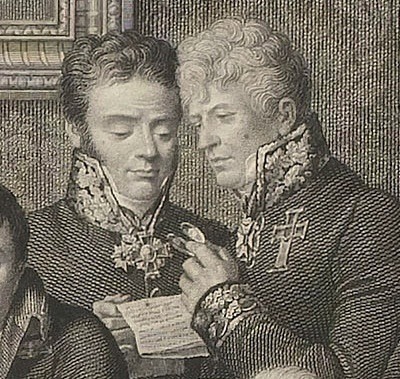
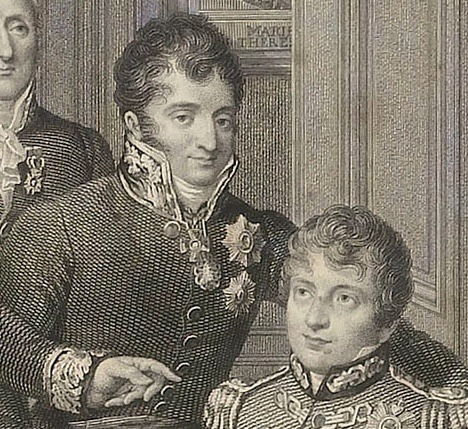
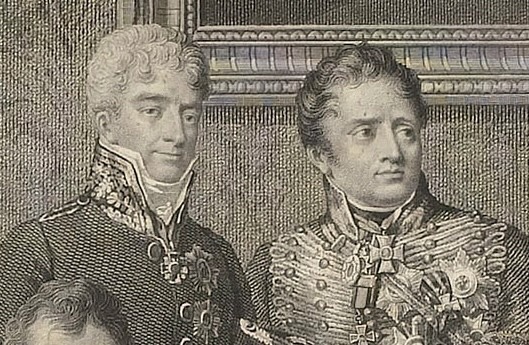
P.S.
Perhaps, there should be more posts with other details of the lithograph as well as Isabey’s original canvas, I’ll just need some time and motivation for that. 👌
#I bet some people know perfectly well what was playing in the background during the arrangement of this post 🤫#the congress of vienna#klemens von metternich#metternich#robert stewart#lord castlereagh#charles-maurice de talleyrand-périgord#talleyrand#wilhelm von humboldt#humboldt#hardenberg#friedrich von gentz#nesselrode#prince razumovsky#charles stewart-vane#napoleonic era#napoleonic wars#19th century#1814#1815
43 notes
·
View notes
Text

My newest read. @count-lero, are you familiar with this one?
48 notes
·
View notes
Text
Heaven gained a Nobel Peace Prize winning angel yesterday
“Henry A. Kissinger, the scholar-turned-diplomat who engineered the United States’ opening to China, negotiated its exit from Vietnam, and used cunning, ambition and intellect to remake American power relationships with the Soviet Union at the height of the Cold War, sometimes trampling on democratic values to do so, died on Wednesday at his home in Kent, Conn. He was 100.
(…)
Few diplomats have been both celebrated and reviled with such passion as Mr. Kissinger. Considered the most powerful secretary of state in the post-World War II era, he was by turns hailed as an ultrarealist who reshaped diplomacy to reflect American interests and denounced as having abandoned American values, particularly in the arena of human rights, if he thought it served the nation’s purposes.
He advised 12 presidents — more than a quarter of those who have held the office — from John F. Kennedy to Joseph R. Biden Jr. With a scholar’s understanding of diplomatic history, a German-Jewish refugee’s drive to succeed in his adopted land, a deep well of insecurity and a lifelong Bavarian accent that sometimes added an indecipherable element to his pronouncements, he transformed almost every global relationship he touched.
(…)
Mr. Kissinger’s secret negotiations with what was then still called Red China led to Nixon’s most famous foreign policy accomplishment. Intended as a decisive Cold War move to isolate the Soviet Union, it carved a pathway for the most complex relationship on the globe, between countries that at Mr. Kissinger’s death were the world’s largest (the United States) and second-largest economies, completely intertwined and yet constantly at odds as a new Cold War loomed.
For decades he remained the country’s most important voice on managing China’s rise, and the economic, military and technological challenges it posed. He was the only American to deal with every Chinese leader from Mao to Xi Jinping. In July, at age 100, he met Mr. Xi and other Chinese leaders in Beijing, where he was treated like visiting royalty even as relations with Washington had turned adversarial.
He drew the Soviet Union into a dialogue that became known as détente, leading to the first major nuclear arms control treaties between the two nations. With his shuttle diplomacy, he edged Moscow out of its standing as a major power in the Middle East, but failed to broker a broader peace in that region.
Over years of meetings in Paris, he negotiated the peace accords that ended the American involvement in the Vietnam War, an achievement for which he shared the 1973 Nobel Peace Prize. He called it “peace with honor,” but the war proved far from over, and critics argued that he could have made the same deal years earlier, saving thousands of lives.
(…)
As was the case with Vietnam, history has judged some of his Cold War realism in a harsher light than it was generally portrayed at the time. With an eye fixed on the great power rivalry, he was often willing to be crudely Machiavellian, especially when dealing with smaller nations that he often regarded as pawns in the greater battle.
He was the architect of the Nixon administration’s efforts to topple Chile’s democratically elected Socialist president, Salvador Allende.
He has been accused of breaking international law by authorizing the secret carpet-bombing of Cambodia in 1969-70, an undeclared war on an ostensibly neutral nation.
His objective was to root out the pro-Communist Vietcong forces that were operating from bases across the border in Cambodia, but the bombing was indiscriminate: Mr. Kissinger told the military to strike “anything that flies or anything that moves.” At least 50,000 civilians were killed.
When Pakistan’s U.S.-backed military was waging a genocidal war in East Pakistan, now Bangladesh, in 1971, he and Nixon not only ignored pleas from the American consulate in East Pakistan to stop the massacre, but they approved weapons shipments to Pakistan, including the apparently illegal transfer of 10 fighter-bombers from Jordan.
Mr. Kissinger and Nixon had other priorities: supporting Pakistan’s president, who was serving as a conduit for Kissinger’s then-secret overtures to China. Again, the human cost was horrific: At least 300,000 people were killed in East Pakistan and 10 million refugees were driven into India.
In 1975, Mr. Kissinger and President Ford secretly approved the invasion of the former Portuguese colony of East Timor by Indonesia’s U.S.-backed military. After the loss of Vietnam, there were fears that East Timor’s leftist government could also go Communist.
Mr. Kissinger told Indonesia’s president that the operation needed to succeed quickly and that “it would be better if it were done after we returned” to the United States, according to declassified documents from Mr. Ford’s presidential library. More than 100,000 East Timorese were killed or starved to death.
Mr. Kissinger dismissed critics of these moves by saying that they did not face the world of bad choices he did. But his efforts to snuff out criticism with sarcastic one-liners only inflamed it.
“The illegal we do immediately,” he quipped more than once. “The unconstitutional takes a little longer.”
On at least one potentially catastrophic stance Mr. Kissinger later reversed himself.
Starting in the mid-1950s as a young Harvard professor, he argued for the concept of limited nuclear war — a nuclear exchange that could be contained to a specific region. In office, he worked extensively on nuclear deterrence — convincing an adversary, for instance, that there was no way to launch a nuclear strike without paying an unacceptably high price.
(…)
��We dropped more ordnance on Cambodia and Laos than on Europe in World War II,” Mr. Obama said in an interview with The Atlantic in 2016, “and yet, ultimately, Nixon withdrew, Kissinger went to Paris, and all we left behind was chaos, slaughter and authoritarian governments that finally, over time, have emerged from that hell.”
(…)
Few figures in modern American history remained so relevant for so long as Mr. Kissinger. Well into his 90s he kept speaking and writing, and charging astronomical fees to clients seeking his geopolitical analysis.
While the protesters at his talks dwindled, the very mention of his name could trigger bitter arguments. To his admirers, he was the brilliant architect of Pax Americana, the chess grandmaster who was willing to upend the board and inject a measure of unpredictability into American diplomacy.
To his detractors — and even some friends and former employees — he was vain, conspiratorial, arrogant and short-tempered, a man capable of praising a top aide as indispensable while ordering the F.B.I. to illegally tap his home phones to see if he was leaking to the press.
(…)
To read Mr. Kissinger’s laudatory 1957 book analyzing the world order created by Prince Klemens von Metternich of Austria, who led the Austrian empire in the post-Napoleonic era, is also to read something of a self-description, particularly when it came to the ability of a single leader to bend nations to his will.
“He excelled at manipulation, not construction,” Mr. Kissinger said of Metternich. “He preferred the subtle maneuver to the frontal attack.”
(…)
In the spring of 1969, soon after taking office, he was so enraged by the leaks behind a Times report on the Cambodia bombing campaign that he ordered the F.B.I. to tap the phones of more than a dozen White House aides, including members of his own staff. The recordings never turned up a culprit.
He was similarly infuriated by the publication of the Pentagon Papers in The Times and The Washington Post in 1971. The classified documents chronicled the government’s war policies and planning in Vietnam, and leaking them, in his view, jeopardized his secret face-to-face diplomacy. His complaints helped inspire the creation of the White House burglary team, the leak-plugging Plumbers unit that would later break into Democratic headquarters at the Watergate building.
(…)
Aides described his insights as brilliant and his temper ferocious. They told stories of Mr. Kissinger throwing books across his office in towering rages, and of a manipulative streak that led even his most devoted associates to distrust him.
“In dealing with other people he would forge alliances and conspiratorial bonds by manipulating their antagonisms,” Walter Isaacson wrote in his comprehensive 1992 biography, “Kissinger,” a book its subject despised.
“Drawn to his adversaries with a compulsive attraction, he would seek their approval through flattery, cajolery and playing them off against others,” Mr. Isaacson observed. “He was particularly comfortable dealing with powerful men whose minds he could engage. As a child of the Holocaust and a scholar of Napoleonic-era statecraft, he sensed that great men as well as great forces were what shaped the world, and he knew that personality and policy could never be fully divorced. Secrecy came naturally to him as a tool of control. And he had an instinctive feel for power relationships and balances, both psychological and geostrategic.”
(…)
There was something fundamentally simple, if terrifying, in the superpower conflicts he navigated. He never had to deal with terrorist groups like Al Qaeda or the Islamic State, or a world in which nations use social media to manipulate public opinion and cyberattacks to undermine power grids and communications.
“The Cold War was more dangerous,” Mr. Kissinger said in a 2016 appearance at the New-York Historical Society. “Both sides were willing to go to general nuclear war.” But, he added, “today is more complex.”
The great-power conflict had changed dramatically from the cold peace he had tried to engineer. No longer ideological, it was purely about power. And what worried him most, he said, was the prospect of conflict with “the rising power” of China as it challenged the might of the United States.
(…)
Mr. Kissinger took some satisfaction in the fact that Russia was a lesser threat. After all, he had concluded the first strategic arms agreement with Moscow and steered the United States toward accepting the Helsinki Accords, the 1975 compact on European security that obtained some rights of expression for Soviet bloc dissidents. In retrospect, it was one of the droplets that turned into the river that swept away Soviet Communism.
(…)
“It’s almost impossible to imagine what the American relationship with the world’s most important rising power would look like today without Henry,” Graham Allison, a Harvard professor who once worked for Mr. Kissinger, said in an interview in 2016.
Other Kissinger efforts yielded mixed results. Through tireless shuttle diplomacy at the end of the Yom Kippur War in 1973, Mr. Kissinger was able to persuade Egypt to begin direct talks with Israel, an opening wedge to the later peace agreement between the two nations.
But perhaps the most important diplomatic contribution Mr. Kissinger made was his sidelining of Moscow in the Middle East for four decades, until Mr. Putin ordered his air force to enter the Syrian civil war in 2015.
(…)
“For the formative years of his youth, he faced the horror of his world coming apart, of the father he loved being turned into a helpless mouse,” said Fritz Kraemer, a non-Jewish German immigrant who was to become Mr. Kissinger’s first intellectual mentor. “It made him seek order, and it led him to hunger for acceptance, even if it meant trying to please those he considered his intellectual inferiors.”
Some have argued that Mr. Kissinger’s rejection of a moralistic approach to diplomacy in favor of realpolitik arose because he had borne witness to a civilized Germany embracing Hitler. Mr. Kissinger often cited an aphorism of Goethe’s, saying that if he were given the choice of order or justice, he, like the novelist and poet, would prefer order.
(…)
Heinz became Henry in high school. He switched to night school when he took a job at a company making shaving brushes. In 1940, he enrolled in City College — tuition was virtually free — and racked up A’s in almost all his courses. He seemed headed to becoming an accountant.
Then, in 1943, he was drafted into the Army and assigned to Camp Claiborne in Louisiana.
It was there that Mr. Kraemer, a patrician intellectual and Prussian refugee, arrived one day to give a talk about the “moral and political stakes of the war,” as Mr. Kissinger recalled. The private returned to his barracks and wrote Mr. Kraemer a note: “I heard you speak yesterday. This is how it should be done. Can I help you in any way?”
The letter changed the direction of his life. Taking him under his wing, Mr. Kraemer arranged for Private Kissinger to be reassigned to Germany to serve as a translator. As German cities and towns fell in the last months of the war, Mr. Kissinger was among the first on the scene, interrogating captured Gestapo officers and reading their mail.
In April 1945, with Allied victory in sight, he and his fellow soldiers led raids on the homes of Gestapo members who were suspected of planning sabotage campaigns against the approaching American forces. For his efforts he received a Bronze Star.
But before returning to the United States he visited Fürth, his hometown, and found that only 37 Jews remained. In a letter discovered by Niall Ferguson, his biographer, Mr. Kissinger wrote at 23 that his encounters with concentration camp survivors had taught him a key lesson about human nature.
“The intellectuals, the idealists, the men of high morals had no chance,” the letter said. The survivors he met “had learned that looking back meant sorrow, that sorrow was weakness, and weakness synonymous with death.”
Mr. Kissinger stayed in Germany after the war — fearful, he said later, that the United States would succumb to a democracy’s temptation to withdraw its weary forces too fast and lose the chance to cement victory.
He took a job as a civilian instructor teaching American officers how to uncover former Nazi officers, work that allowed him to crisscross the country. He became alarmed by what he saw as Communist subversion of Germany and warned that the United States needed to monitor German phone conversations and letters. It was his first taste of a Cold War that he would come to shape.
(…)
But the outsider now had direction, and he found another mentor in William Yandell Elliott, who headed the government department. Professor Elliott guided Mr. Kissinger toward political theory, even as he wrote privately that his student’s mind “lacks grace and is Teutonic in its systematic thoroughness.”
Under Professor Elliott, Mr. Kissinger wrote a senior thesis, “The Meaning of History,” focusing on Immanuel Kant, Oswald Spengler and Arnold Toynbee. At a hefty 383 pages, it gave rise to what became informally known at Harvard as “the Kissinger rule,” which limits the length of a senior thesis.
(…)
Returning to Harvard to pursue a Ph.D., he and Professor Elliott started the Harvard International Seminar, a project that brought young foreign political figures, civil servants, journalists and an occasional poet to the university.
The seminar placed Mr. Kissinger at the center of a network that would produce a number of leaders in world affairs, among them Valéry Giscard d’Estaing, who would become president of France; Yasuhiro Nakasone, a future prime minister of Japan; Bulent Ecevit, later the longtime prime minister of Turkey; and Mahathir Mohamad, the future father of modern Malaysia.
With Ford Foundation support, the seminar kept his family eating as Mr. Kissinger worked on his dissertation on the diplomacy of Metternich of Austria and Robert Stewart Castlereagh, the British foreign secretary, after the Napoleonic wars. The dissertation, which became his first book, both shaped and reflected his view of the modern world.
The book, “A World Restored,” can be read as a guide to Mr. Kissinger’s later fascination with the balancing of power among states and his suspicion of revolutions. Metternich and Mr. Castlereagh sought stability in Europe and largely achieved it by containing an aggressive revolutionary France through an equilibrium of forces.
Mr. Kissinger saw parallels in the great struggle of his time: containing Stalin’s Soviet Union.
“His was a quest for a realpolitik devoid of moral homilies,” Stanley Hoffmann, a Harvard colleague who later split with Mr. Kissinger, said in 2015.
Mr. Kissinger received his Ph.D. in 1954 but received no offer of an assistant professorship. Some on the Harvard faculty complained that he had not poured himself into his work as a teaching fellow. They regarded him as too engaged in worldly issues. In fact, he was simply ahead of his time: The Boston-to-Washington corridor would soon become jammed with academics consulting with the government or lobbyists.
The Harvard rejection embittered Mr. Kissinger. The Nixon tapes later caught him telling the president that the problem with academia was that “you are entirely dependent on the personal recommendation of some egomaniac.”
With the help of McGeorge Bundy, a Harvard colleague, Mr. Kissinger was placed in an elite study group at the Council on Foreign Relations, at the time a stuffy, all-male enclave in New York. Its mission was to study the impact of nuclear weapons on foreign policy.
Mr. Kissinger arrived in New York with a lot of attitude. He thought that the Eisenhower administration was wrongly reluctant to rethink American strategic policy in light of Moscow’s imminent ability to strike the United States with overwhelming nuclear force.
“Henry managed to convey that no one had thought intelligently about nuclear weapons and foreign policy until he came along to do it himself,” Paul Nitze, perhaps the country’s leading nuclear strategist at the time, later told Strobe Talbott, who was deputy secretary of state under President Bill Clinton.
Mr. Kissinger seized on a question that Mr. Nitze had begun discussing: whether America’s threat to go to general nuclear war against the Soviet Union was no longer credible given the commonly held view that any such conflict would invite only “mutually assured destruction.” Mr. Nitze asked whether it would be wiser to develop weapons to conduct a limited, regional nuclear war.
Mr. Kissinger decided that “limited nuclear war represents our most effective strategy.”
What was supposed to be a council publication became instead a Kissinger book, and his first best seller: “Nuclear Weapons and Foreign Policy.” Its timing, 1957, was perfect: It played into a national fear of growing Soviet power.
And its message fit the moment: If an American president was paralyzed by fear of escalation, Mr. Kissinger argued, the concept of nuclear deterrence would fail. If the United States could not credibly threaten to use small, tactical weapons, he said, it “would amount to giving the Soviet rulers a blank check.” In short, professing a willingness to conduct a small nuclear war was better than risking a big one.
To his critics, this was Mr. Kissinger at his Cold War worst, weaving an argument that a nuclear exchange could be won. Many scholars panned the book, believing its 34-year-old author had overestimated the nation’s ability to keep limited war limited. But to the public it was a breakthrough in nuclear thinking. To this day it is considered a seminal work, one that scholars now refer to in looking for lessons to apply to cyberwarfare.
(…)
David Riesman, the sociologist and co-author of a seminal work on the American character, “The Lonely Crowd,” suggested that dinner with Mr. Kissinger was a chore. “He would not spend time chatting at the table,” Mr. Riesman said. “He presided.”
Leslie H. Gelb, then a doctoral student and later a Pentagon official and columnist for The Times, called him “devious with his peers, domineering with his subordinates, obsequious to his superiors.”
(…)
At Harvard, he began organizing meetings on the emerging crisis of the day, Vietnam. He explored the link between military actions on the ground and the chances of success through diplomacy, seemingly convinced, even then, that the war could be ended only through negotiations.
After a long trip to Saigon and the front lines, he wrote that the American task was to “build a nation in a divided society in the middle of a civil war,” defining a problem that would haunt Washington not only in Southeast Asia but also in Afghanistan and Iraq.
(…)
With Lyndon B. Johnson’s White House engaged in peace talks with the North Vietnamese in Paris, Mr. Kissinger was said to have used his contacts on his own trips to Paris to funnel inside information back to Nixon. “Henry was the only person outside the government we were authorized to discuss the negotiation with,” Richard C. Holbrooke, who went on to key positions in the Clinton and Obama administrations, told Mr. Isaacson for his Kissinger biography. “We trusted him. It is not stretching the truth to say that the Nixon campaign had a secret source within the United States negotiating team.”
Nixon himself referred in his memoirs to his “highly unusual channel” of information. To many who have since accepted that account, the back-channel tactic was evidence of Mr. Kissinger’s drive to obtain power if Nixon was elected. While there is no evidence that he supplied classified information to the Nixon campaign, there have long been allegations that Nixon used precisely that to give back-channel assurances to the South Vietnamese that they would get a better deal from him than from Johnson, and that they should agree to nothing until after the election.
Mr. Ferguson and other historians have rebutted that claim, though one of Nixon’s biographers found notes from H.R. Haldeman, one of Nixon’s closest aides, in which the presidential candidate ordered his staff to “monkey wrench” peace talks.
Whatever the truth, Mr. Kissinger was on Nixon’s radar. And after the election, a new president who had often expressed his disdain for Jews and Harvard academics chose, as his national security adviser, a man who was both.
Nixon directed Mr. Kissinger to run national security affairs covertly from the White House, cutting out the State Department and Nixon’s secretary of state, William P. Rogers. Nixon had found his man — a “prized possession,” he later called Mr. Kissinger.
While the post of national security adviser had grown in importance since Harry S. Truman established the role, Mr. Kissinger took it to new heights. He recruited bright young academics to his staff, which he nearly doubled. He effectively sidelined Mr. Rogers and battled the pugnacious defense secretary, Melvin R. Laird, moving more decision-making into the White House.
(…)
Staff turnover was high, but many of those who stayed came to admire him for his intellect and his growing list of achievements. Still, they were stunned by his secretiveness. “He was able to give a conspiratorial air to even the most minor of things,” Mr. Eagleburger, who admired him, said before his death in 2011.
Poking fun at himself in a way that some saw as disingenuous, he often told visiting diplomats that “I have not faced such a distinguished audience since dining alone in the Hall of Mirrors at Versailles.”
Nixon had built much of his campaign around the promise to end the war on honorable terms. It was Mr. Kissinger’s task to turn that promise into a reality, and he made clear in a Foreign Affairs article, published as Nixon was preparing to take office, that the United States would not win the war “within a period or with force levels politically acceptable to the American people.”
In the 2018 interview, he said the United States had misunderstood the struggle from the start as “an extension of the Cold War in Europe.”
“I made the same mistake,” he said. “The Cold War was really about saving democratic countries from invasion.” Vietnam was different, a civil war. “What we did not understand at the beginning of the war in Vietnam,” he went on, “is how hard it is to end these civil wars, and how hard it is to get a conclusive agreement in which everyone shares the objective.”
(…)
Mr. Kissinger’s pursuit of two goals that were seen as at odds with each other — winding down the war and maintaining American prestige — led him down roads that made him a hypocrite to some and a war criminal to others. He had come to office hoping for a fast breakthrough: “Give us six months,” he told a Quaker group, “and if we haven’t ended the war by then, you can come back and tear down the White House fence.”
But six months later, there were already signs that the strategy for ending the war would both expand and lengthen it. He was convinced that the North Vietnamese would enter serious negotiations only under military pressure. So while he restarted secret peace talks in Paris, he and Nixon escalated and widened the war.
“I can’t believe that a fourth-rate power like North Vietnam doesn’t have a breaking point,” Mr. Kissinger told his staff.
Mr. Kissinger called it “war for peace.” Yet the result was carnage. Mr. Kissinger had an opportunity to end the war in peace talks early in Nixon’s presidency on terms as good as those he ultimately settled for later. Yet he turned it down, and thousands of Americans died because he was convinced he could do better.
As Mr. Kissinger sat with his big yellow legal pads in his White House office, scribbling notes that have now been largely declassified, he designed a three-part plan. It consisted of a cease-fire that would also embrace Laos and Cambodia, which had been sucked into the fighting; simultaneous American and North Vietnamese withdrawals from South Vietnam; and a peace treaty that returned all prisoners of war.
His notes and taped conversations with Nixon are riddled with self-assured declarations that the next escalation of bombing, and a secret incursion into Cambodia, would break the North Vietnamese and force them into real negotiations. But he was also reacting, he later wrote, to a Vietcong and North Vietnamese offensive early in Nixon’s presidency that had killed almost 2,000 Americans and “humiliated the new president.”
Mr. Kissinger later constructed a narrative emphasizing the wisdom of the strategy, but the notes and phone conversations suggest that he had routinely overestimated his negotiating skills and underestimated his opponents’ capacity to wait the Americans out.
It was the bombing campaign in Cambodia — code-named “Operation Menu,” with phases named “Breakfast,” “Lunch” and “Dinner” — that outraged Mr. Kissinger’s critics and fueled books, documentaries and symposiums exploring whether the United States had violated international law by expanding the conflict into a country that was not party to the war. Mr. Kissinger’s rationale was that the North had created supply lines through Cambodia to fuel the war in the South.
(…)
It took until January 1973 for Mr. Kissinger to reach a deal, assuring the South Vietnamese that the United States would return if the North violated the accord and invaded. Privately, Mr. Kissinger was all but certain that the South could not hold up under the pressure. He told John D. Erlichman, a top White House aide, that “if they are lucky, they can hold out for a year and a half.”
That proved prescient: Saigon fell in April 1975, with the unconditional surrender of South Vietnam. Fifty-eight thousand Americans and more than three million North and South Vietnamese had died, and eight million tons of bombs had been dropped by the United States. But to Mr. Kissinger, getting it over with was the key to moving on to bigger, and more successful, ventures.
When Mr. Kissinger was writing campaign speeches for Nelson Rockefeller in 1968, he included a passage in which he envisioned “a subtle triangle with Communist China and the Soviet Union.” The strategy, he wrote, would allow the United States to “improve our relations with each as we test the will for peace of both.”
He got a chance to test that thesis the next year. Chinese and Soviet forces had clashed in a border dispute, and in a meeting with Mr. Kissinger, Anatoly F. Dobrynin, the Soviet ambassador to Washington, spoke candidly of the importance of “containing” the Chinese. Nixon directed Mr. Kissinger to make an overture, secretly, to Beijing.
It was a remarkable shift for Nixon. A staunch anti-Communist, he had long had close ties to the so-called China lobby, which opposed the Communist government led by Mao Zedong in Beijing. He also believed that North Vietnam was acting largely as a Chinese satellite in its war against South Vietnam and its American allies.
Nixon and Mr. Kissinger secretly approached Pakistan’s leader, Yahya Khan, to act as a go-between. In December 1970, Pakistan’s ambassador in Washington delivered a message to Mr. Kissinger that had been carried from Islamabad by courier. It was from the Chinese prime minister, Zhou Enlai: A special envoy from President Nixon would be welcome in Beijing.
(…)
Over the next two months, messages were exchanged concerning a possible presidential visit. Then, on June 2, 1971, Mr. Kissinger received one more communication through the Pakistani connection, this one inviting him to Beijing to prepare for a Nixon visit. Mr. Kissinger pulled Nixon aside from a White House dinner to declare: “This is the most important communication that has come to an American president since the end of World War II.”
(…)
In Beijing he made a presentation to Mr. Zhou, ending with the observation that as Americans “we find ourselves here in what to us is a land of mystery,” he recalled in a 2014 interview for the Harvard Secretaries of State project. Mr. Zhou interrupted. “There are 900 million of us,” he said, “and it’s not mysterious to us.”
It took three days to work out the details, and after Mr. Kissinger cabled the code word “eureka” to Nixon, the president, without any advance warning, appeared on television to announce what Mr. Kissinger had arranged. His enemies — the Soviets, the North Vietnamese, the Democrats, his liberal critics — were staggered. On Feb. 21, 1972, he became the first American president to visit mainland China.
The Chinese were a little stunned, too. Mao sidelined Mr. Zhou within a month. After that, no Chinese ever mentioned Zhou Enlai again, Mr. Kissinger told the Harvard project. He speculated that Mao had feared that his No. 2 “was getting personally too friendly with me.”
(…)
“That China and the United States would find a way to come together was inevitable given the necessities of the time,” he wrote in “On China,” referring to domestic strife in both countries and a common interest in resisting Soviet advances. But he also insisted that he had not been seeking to isolate Russia as much as to conduct a grand experiment in balance-of-power politics. “Our view,” he wrote, “was that the existence of the triangular relations was in itself a form of pressure on each of them.”
Historians still debate whether that worked. But there is no debating that it made Mr. Kissinger an international celebrity. It also proved vital for reasons that never factored into Mr. Kissinger’s calculus five decades ago — that China would rise as the only true economic, technological and military competitor to the United States.
Nixon’s announcement that he would go to China startled Moscow. Days later, Mr. Dobrynin called on Mr. Kissinger and invited Nixon to meet the Soviet leader, Leonid I. Brezhnev, in the Kremlin. The date was set for May 1972, just three months after the China trip. “To have two Communist powers competing for good relations with us could only benefit the cause of peace,” Mr. Kissinger noted later. “It was the essence of triangular strategy.”
To prepare for the summit, he flew to Moscow, again in secret. Nixon had agreed to let him go on the condition that Mr. Kissinger spend most of his time insisting that the Soviets restrain their North Vietnamese allies, who were mounting an offensive.
By then, however, Mr. Kissinger had changed his mind about how much control the Soviets had over the North Vietnamese, writing to his deputy, Alexander M. Haig, “I do not believe that Moscow is in direct collusion with Hanoi.”
Instead, he sought to reinvigorate negotiations, which had been stumbling along since late 1969, with the aim of limiting the number of ground-based and submarine-launched nuclear missiles that the two countries were pointing at each other and curbing the development of antiballistic missile systems. Mr. Kissinger achieved a breakthrough, writing to Nixon, “You will be able to sign the most important arms control agreement ever concluded.”
That may have been overstatement, but Mr. Brezhnev and Nixon signed what became the SALT I treaty in May 1972. It opened decades of arms-control agreements — SALT, START, New START — that greatly reduced the number of nuclear weapons in the world. The era known as détente had begun. It unraveled only late in Mr. Kissinger’s life. While Mr. Putin and Mr. Biden renewed New START in 2021, once the war in Ukraine started the Russian leader suspended compliance with many parts of the treaty.
To Mr. Kissinger, there were superpowers and there was everything else, and it was the everything else that got him into trouble.
He never stopped facing questions about the overthrow and death of Mr. Allende in Chile in September 1973 and the rise of Augusto Pinochet, the general who had seized power.
Over the next three decades, as General Pinochet came to be accused — first in Europe, then in Chile — of abductions, murder and human rights violations, Mr. Kissinger was repeatedly linked to clandestine activities that had undermined Mr. Allende, a Marxist, and his democratically elected government. The revelations emerged in declassified documents, lawsuit depositions and journalistic indictments, like Christopher Hitchens’s book “The Trial of Henry Kissinger” (2001), which was made into a documentary film.
(…)
Nixon, too, was alarmed, according to a White House tape that Peter Kornbluh, of the National Security Archive, cited in his book “The Pinochet File: A Declassified Dossier on Atrocity and Accountability.” It quotes Nixon as ordering the U.S. ambassador in Santiago “to do anything short of a Dominican-type action” to keep Mr. Allende from winning the election. The reference was to the United States invasion of the Dominican Republic in 1965.
Mr. Kissinger insisted, in a memoir and in testimony to Congress, that the United States “had nothing to do” with the military coup that overthrew Mr. Allende. However according to phone records that were declassified in 2004, Mr. Kissinger bragged that “we helped them” by creating the conditions for the coup.
That help included backing a plot to kidnap the commander in chief of Chile’s army, Gen. René Schneider, who had refused C.I.A. entreaties to mount a coup. The general was killed in the attempt. His car was ambushed, and he was fatally shot at point-blank range.
(…)
In 2001, General Schneider’s two sons filed a civil suit in the United States accusing Mr. Kissinger of helping to orchestrate covert activities in Chile that led to their father’s death. A U.S. federal court, without ruling on Mr. Kissinger’s culpability, dismissed the case, saying that foreign policy was up to the government, not the courts.
Mr. Kissinger, in his defense, said his actions had to be viewed within the context of the Cold War. “I don’t see why we need to stand by and watch a country go Communist due to the irresponsibility of its people,” he said, adding half-jokingly: “The issues are much too important for the Chilean voters to be left to decide for themselves.”
Chile was hardly the only place Mr. Kissinger was accused of treating as a minor chess piece in his grand strategies. He and President Ford approved Indonesia’s invasion of East Timor in December 1975, leading to a disastrous 24-year occupation by a U.S.-backed military.
Declassified documents released in 2001 by the National Security Archive indicate that Ford and Mr. Kissinger knew of the invasion plans months in advance and were aware that the use of American arms would violate U.S. law.
“I know what the law is,” Mr. Kissinger was quoted as telling a staff meeting when he got back to Washington. He then asked how it could be in “U.S. national interest” for Americans to “kick the Indonesians in the teeth?”
The columnist Anthony Lewis wrote in The Times, “That was Kissingerian realism: the view that the United States should overlook brutalities by friendly authoritarian regimes because they provided ‘stability.’”
It was a familiar complaint. In 1971, the slaughter in East Pakistan that Nixon and Mr. Kissinger had ignored in deference to Pakistan expanded into a war between Pakistan and India, a nation loathed by both China and the Nixon White House.
“At this point, the recklessness of Nixon and Kissinger only got worse,” Dexter Filkins, of The New Yorker, wrote in discussing Professor Bass’s account in The New York Times Book Review in 2013. “They dispatched ships from the Seventh Fleet into the Bay of Bengal, and even encouraged China to move troops to the Indian border, possibly for an attack — a maneuver that could have provoked the Soviet Union. Fortunately, the leaders of the two Communist countries proved more sober than those in the White House. The war ended quickly, when India crushed the Pakistani Army and East Pakistan declared independence,” becoming the new nation of Bangladesh.
(…)
Still more declassified documents revealed how Mr. Kissinger had used his historic 1971 meeting with Mr. Zhou in China to lay out a radical shift in American policy toward Taiwan. Under the plan, the United States would have essentially abandoned its support for the anticommunist Nationalists in Taiwan in exchange for China’s help in ending the war in Vietnam. The account contradicted one he had included in his published memoirs.
The emerging material also revealed the price of an American-interests-first realism. In tapes released by the Nixon Presidential Library and Museum in 2010, Mr. Kissinger is heard telling Nixon in 1973 that helping Soviet Jews emigrate and thus escape oppression by a totalitarian regime was “not an objective of American foreign policy.”
“And if they put Jews into gas chambers in the Soviet Union,” he added, “it is not an American concern. Maybe a humanitarian concern.”
The American Jewish Committee described the remarks as “truly chilling,” but suggested that antisemitism in the Nixon White House may have partly been to blame.
“Perhaps Kissinger felt that, as a Jew, he had to go the extra mile to prove to the president that there was no question as to where his loyalties lay,” David Harris, the committee’s executive director, said.
(…)
Mr. Kissinger was aware of his contentious place in American history, and he may have had his own standing in mind when, in 2006, he wrote about Dean Acheson, secretary of state under Truman, in The Times Book Review, calling him “perhaps the most vilified secretary of state in modern American history.”
“History has treated Acheson more kindly,” Mr. Kissinger wrote. “Accolades for him have become bipartisan.”
Thirty-five years after his death, he said, Acheson had “achieved iconic status.”
(…)
One student asked him about his legacy. “You know, when I was young, I used to think of people of my age as a different species,” he said to laughter. “And I thought my grandparents had been put into the world at the age at which I experienced them.”
“Now that I’ve reached beyond their age,” he added, “I’m not worried about my legacy. And I don’t give really any thought to it, because things are so changeable. You can only do the best you’re able to do, and that’s more what I judge myself by — whether I’ve lived up to my values, whatever their quality, and to my opportunities.””
youtube
#kissinger#henry kissinger#diplomacy#nixon#richard nixon#ford#gerald ford#mao#zhou enlai#china#chile#allende#vietnam#cambodia#nelson rockefeller#nuclear weapons#nuclear strategy#nobel peace prize#realpolitik#metternich#cold war#soviet union#monty python#Youtube
6 notes
·
View notes
Text
Metternich: Master of Napoleon's son.
When someone reads about the short and desperate life of Napoleon's son; the King of Rome (Napoleon II, L'aiglon, the Duke of Reichstadt or Franz) soon realizes that, in fact, his life was never his, but Metternich's. Of course, the signs are not at first glance when one barely gets to know the history between these two (and other) characters, even more so knowing that it is said that they only spoke directly with the other on five counted occasions.*¹
We know (or in case you don't, dear reader, you can ask me for the context in private or by asking me to write a blog about it) his governors; his tutors: Count Dietrichstein, captain Foresti and professor Collin -initially - but who was behind all of them? It was Prince Metternich, of course, being he the one who assigned the men to "take care" of the King of Rome, replacing with them his french ladies that the boy loved so much; this way, the Austrian Chancellor guarding since his arrival in Austria the little heir of the "Ogre". It was his work - that is, his careful administration, his observations and movements from far away - that doomed from such a young age the boy who once had everything, only to have nothing the next day.
I bring to you this excerpt from "The King of Rome: Napoleon II, L'Aiglon" by Octave Aubry, which although it isn’t the most descriptive of the point to be discussed in this blog, allows us to peek for a moment at how was the dynamic between Klemens and the boy... or rather, how the chancellor had control of the life of the King of Rome from a distance.
Dietrichstein's reports to Marie Louise make frequent complaints about the child's laziness and ill-will, in spite of his great intelligence. And what can that mean except that he was still resisting?
But under that exacting ferule, gripped in a mold that was crushing his instincts and his will more and more, how could the little King fail to yield in the long run? And in fact he did yield, only to rebel again, be punished once more, and submit a second time. He was rewarded with toys, albums, favorite dishes, sweets, picnics in the country, the circus, a dog, some birds. His grandfather ordered a handsomely chased shotgun for him, just his size, and one day invited him to go hunting, not as an onlooker now, but as a participant. Among Dietrichstein's papers is one of the child's corrected exercises, a little composition describing with a naive importance that day of relaxation and undisguided pleasure.
August 25, 1819.
"To-day I went hunting with my grandfather. We drove as far as the suburbs of Hassendorf where we left the carriage and where the other hunters were waiting for us." I was with my grandfather all the time. We went to the shelters, where I was given a gun, which caused me great pleasure. My grandfather, my Uncle Franz and I went through the shelters to come out on the other side. There my uncle left us to take up the post that had been assigned to him. We waited for the game to come out of the tickets, while the other wing was making a turning movement. After a long wait, the game appeared. I tried a shot, but missed my aim. The other wing was more fortunate than ours. In the beginning my grandfather had no luck, but later on he shot very well. I shot once more. The aged Councilor George, who saw me, came toward me and told me that the shot had frightened him. He took off his hat, showed me the eagle on it, and said he had caught the bird. That made me laugh.”
(…)
Victories over a child sad words indeed to register!
Though, of course, not so much over a child as over the heir of Napoleon Bonaparte! Count Maurice was a prisoner of the method he was applying. His task was to form a character, and he was without character himself. He could be a tutor to the Prince of Parma, but never a friend.
Reports were also regularly sent to Metternich. Everything the child said and did, his work, his amusements, his caprices, his tempers, his tears, his laughs were all set down on huge sheets of paper, and submitted to the Chancellor; and the latter, adjusting his lorgnette, read attentively and classified them in a ponderous file. He seldom referred to such reports at his daily audiences with the Emperor; for he affected a manner of polite indifference toward the young prince.
(…)
But was it not enough for Prince Metternich to have reduced the son of his enemy to such a pass?*² No, that hostage had also to change in appearance as he had changed in dress and decorations. That submissive little Frenchman, so alone and so helpless, who had so stoutly resisted his governors, had to become a spiritless, satisfied subject, without personality and without initiative, a pawn for the Chancellor to manipulate at will on the diplomatic chessboard for, after all, who could say but that he might prove useful later on in some subtle combination? And the Chancellor had eyes which were never so full of tears as not to be able to see far, far into the future.
REFERENCES:
King of Rome: A Biography of Napoleon's Tragic Son André Castelot*¹
This means, reducing him from a crown prince of the French empire, to a prince of Parma, to an Austrian Duke with no political power, or no power at all.*²
Source.
#klemens von metternich#metternich#the king of rome#napoleon ii#duke of reichstadt#l'aiglon#marie louise#francis ii#napoleonic wars
46 notes
·
View notes
Text
Metternich wrote in 1807:
“All nations have made the mistake to attach to a treaty with France the value of a peace, without immediately preparing again for war. No peace is possible with a revolutionary system, whether with a Robespierre who declares war on chateaux or a Napoleon who declares war on Powers.”
Source: A World Restored, Henry Kissinger
Oh Metternich. I feel the need to point out that Napoleon never declared a war in his life.
#this is from Kissinger’s doctoral dissertation#I’m obligated to make this observation everytime someone says this#Metternich#Napoleon#klemens von metternich#napoleon bonaparte#napoleonic era#napoleonic#first french empire#Austria#19th century#quote#ref#reference#frev#french revolution#french empire#napoleonic wars#france#coalitions#history#text post
55 notes
·
View notes
Text


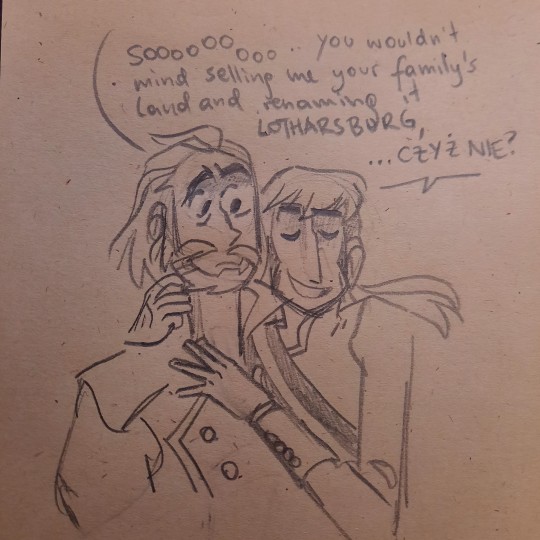

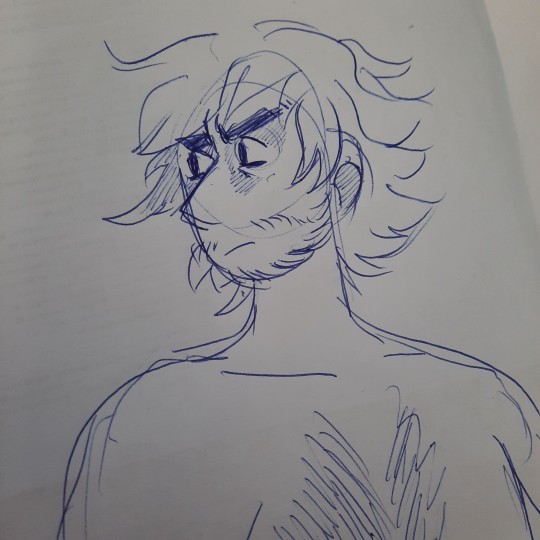


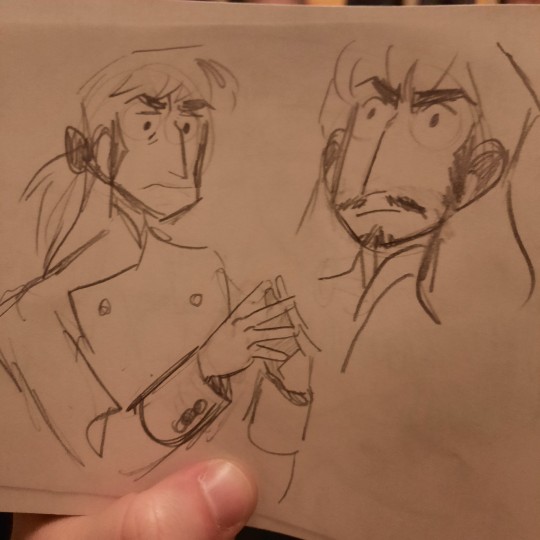


assorted draws for the idiotic language barriers cinematic universe
#czech rebel and austrian bastard#idiotic language barriers#cirileeart#jan#lothar#zbigniew#metternich#franz
48 notes
·
View notes
Text
Wellington: You're a nerd, no offense.
Metternich: You know, just because you say "no offense" doesn't excuse the offensive remark that inevitably follows.
Wellington: Well, in that case, you're a nerd. Offense intended.
25 notes
·
View notes
Text

no way he created the first police state, looked like this and still had w rizz
#history#history memes#habsburg monarchy#metternich#what does clemens wenzel fürst von metternich have that i don't
3 notes
·
View notes
Note
Okay so you're the Napoleon man, the go-to guy. And by extension, the Napoleonic era guy. Any humorous thoughts on Metternich? Just listened to a podcast feature on him, and he's such a try hard I can't help but laugh. Curious about your impressions.
Oh man I’m so sorry to disappoint - Metternich is someone I hand a general fondness for but it’s based on an incredibly cursory knowledge of him. So I wish I knew more!
If you don’t mind sharing the podcast, I’d definitely be interested in checking it out. ❤️
But I can definitely see him being a try hard and like…the teachers pet, in his way?
6 notes
·
View notes